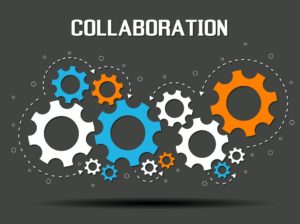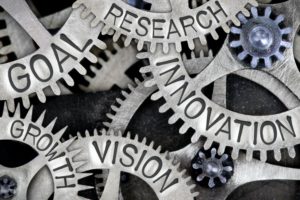In an earlier post (“Winners do their Homework“), I talked about the importance of decision-making based on facts. I stand by what I said at the time, but I’d like to expand on that idea.
Here’s my premise: I’m sure if we were to ask 100 leaders whether they operate based on facts, 100 of them would say yes, and that would include you and I.
But facts age over time and unless we update what’s in our brain, what we think to be true may no longer be so. That’s as dangerous as operating without facts at all.
Factfulness
No one made that point clearer than Hans Rosling in his book “Factfulness: Ten Reasons We’re Wrong About the World.”
[If you haven’t read it, I suggest you do. It will blow your mind.]His premise is that most of us operate under incorrect worldviews.
To prove it, he developed a 13-question quiz to test individuals’ knowledge about the world.
Here’s the shocker: of the more than 14,000 people worldwide who took the test, not a single person got 100% correct answers.
Not one. Not Nobel laureates. Not journalists. Not elected officials, educators, business leaders from anywhere in the world.
Shockingly, most people scored around the 30% range, which is in the area of the statistical 33% that chimpanzees would have gotten just by hitting answers at random.
On a personal level, taking the quiz is a humbling experience and a big eye-opener. Even if you choose not to read the book (but I hope you do), I urge you to take the quiz. (More about it later).
The lesson
This is why: While the test quizzes our worldviews, the question we must ask ourselves is whether our more day-to-day views about our work, our environment, our neighbors, our business, might be equally incorrect.
To me, this is yet one more reminder that we’ve got to constantly update our brains.
I know I’ve been talking about lifelong learning for quite some time. Nothing to me is more important in terms of succeeding and even surviving amidst the flood of technological change.
I’m glad I’m not the only one similarly preoccupied by that problem. In fact, I’m pleased to see our centers of knowledge, our educational institutions, think about the role they can play in helping all of us stay current in an ever-changing world.
Alert: you are due for an update
Joseph A. Aoun, president of Northeastern University, is one of the people giving this issue a lot of thought.
In his book “Robot-Proof: Higher Education in the Age of Artificial Intelligence,” Aoun identifies three literacies that, together with four cognitive capacities, can help learners become “robot-proof,” to use his term.
These are data, technical, and human literacy. The four cognitive capacities are critical thinking, systems thinking, entrepreneurship, and cultural agility.
Lifelong alma maters
I won’t go into each of these important skills and competencies. Aoun does a great job and I hope you’ll make the time to read his book.
But the one salient thought I want to bring up is his proposal that universities evolve into lifelong alma maters, thus fulfilling the role of their Latin name: “nourishing mother.”
The idea is that instead of ending their motherly role at the time of dispensing degrees, they instead become lifelong guardians of their graduates’ knowledge.
What if, for example, on an individual level, they could keep tabs on what we knew when we graduated and constantly benchmark it against current knowledge so that every X years you would get an alert, much like an app, reminding you to come back to your alma mater for an update? And not just a general alert but an actual suggested curriculum of courses or seminars that could bring you up to date?
I think it’s a wonderful idea and hope it becomes a reality.
In the meantime, I’m comforted in knowing that big thinkers like Aoun are doing what we should all be doing: transforming by letting go of what is no longer valid and learning new competencies.
Start here
These days we all enjoy jokes about outdated devices and outdated technologies (VHS comes to mind). Yet we fail to acknowledge that our most important device, our brain, may be getting equally outdated and maybe at an even faster clip than we wish to admit.
If you’ve been following my posts, you’ll know this is an area of great concern to me. I hope I’ve been able to spark the same concern in you.
Gloomy as the prospect of becoming outdated may seem, I see it as a challenge. An opportunity, in fact, to learn new things.
We are looking at a virtual smorgasbord of knowledge, largely new to most of us, ready for the sampling.
Daunting? Perhaps. Exciting? You bet.
Where are you going to start? Take the quiz. Here’s the link: https://factfulnessquiz.com.
Let me know what you think and, if you’re up to it, how you did on the quiz.



